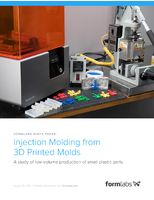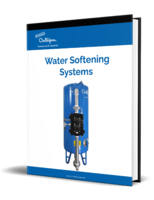RTOS Platform enhances MCU, multicore applications support.
Share:
Press Release Summary:
With process model that includes ARM® Cortex® M-based cores, Mentor® Embedded Nucleus® targets applications for connected embedded devices. Developers can use one embedded OS to increase system reliability through memory partitioning for all ARM cores, facilitating code reuse. Multicore framework allows management of inter-process communication and processor life cycle for complex heterogeneous SoC, while Nucleus RTOS graphics capabilities include Imagination and Vivante GPU support.
Original Press Release:
Mentor Graphics Extends Nucleus RTOS with Industry-Leading Capabilities for Microcontroller and Multicore Applications
WILSONVILLE, Ore. -- Mentor Graphics Corporation (NASDAQ: MENT) today announced a new version of the Mentor® Embedded Nucleus® real time operating system (RTOS) targeting high-performance, next-generation applications for connected embedded devices. The Nucleus RTOS process model is expanded to include ARM® Cortex® M- based cores. For the first time, software developers can use a single embedded operating system to increase system reliability through memory partitioning for the entire spectrum of ARM cores, facilitating code reuse across an entire product family comprising low-end to high-end devices. New in this release is a multicore framework to manage inter-process communication (IPC) and processor life cycle for complex heterogeneous system-on-chip (SoC) and enhanced Nucleus RTOS graphics capabilities with Imagination and Vivante GPU support.
Memory Partitioning for MCU Based Devices
System developers can now use a real-time operating system that is scalable to conform to resource limitations typical of microcontroller (MCU)-based devices while still providing space partitioning to improve system reliability. By using the memory protection unit (MPU) on ARM Cortex M- based cores, the Nucleus RTOS process model creates memory partitioning without the need to implement virtual memory, maintaining a lightweight operating environment that can be executed in devices with limited memory by "executing in place" out of flash devices. The Nucleus RTOS process model improves system reliability for devices with aggressive dependability requirements, and for devices with safety requirements such as those designed for industrial and medical devices.
The Mentor Embedded Multicore Framework: Industry's First Complete AMP Heterogeneous Solution
Today's complex SoC architectures combine application-class and microcontroller-class cores, driving the consolidation of heterogeneous operating environments on to a single device. To address these complexities Nucleus RTOS includes the Mentor Embedded Multicore Framework (MEMF) for asymmetric multi-processing (AMP) enablement. Based on a clean-room implementation of the functionality in "virtIO", "remoteproc", and "rpmsg", MEMF enables developers to integrate Nucleus RTOS, Linux®, and bare metal-based applications and manage the challenges associated with IPC, resource sharing, and processor control within a heterogeneous multi-OS environment. Developers can control the boot-up and shut-down of individual cores on a SoC, allowing applications to maximize compute performance or minimize power consumption based on the use case.
"Xilinx is pleased to have worked with Mentor on the development of the Mentor Embedded Multicore Framework to expand Asymmetric Multiprocessing capabilities on our Zynq-7000 All Programmable SoCs," said Tomas Evensen, chief scientist of embedded software at Xilinx, Inc. "The MEMF provides a scalable software framework to address the heterogeneous multi-OS computing needs of our customers who combine multiple hardened processors and soft core processors in the FPGA fabric."
Enhanced Graphics with Graphical Processor Unit (GPU) Support
Dynamic user interfaces (UI) are computationally intensive and often require the acceleration provided by the graphics processor unit (GPU) in today's complex SoCs. The Nucleus RTOS makes use of open standards to harness the power of the GPUs in leading ARM Cortex A-based SoCs with OpenGL® / ES integration. Rich graphics are enabled with Qt® for Nucleus RTOS to generate compelling interactive UIs. For resource-limited devices, the Embedded Wizard from Tara Systems is integrated with the Nucleus RTOS for memory-efficient yet rich UIs.Â
Nucleus Product Information and Availability
The Mentor Embedded Nucleus product is available now, with starting list price at $5,000 (USD). To learn more and request an evaluation of the Nucleus RTOS, visit www.mentor.com/nucleus.
About Mentor Embedded
The Mentor Graphics Embedded Systems Division enables embedded development for a variety of applications including automotive, industrial, smart energy, medical devices, and consumer electronics. Embedded developers can create systems with the latest processors and micro-controllers with commercially supported and customizable Linux-based solutions including the industry-leading Sourcery(TM) CodeBench and Mentor Embedded Linux products. For real-time systems, developers can take advantage of the small-foot-print and low-power-capable Nucleus RTOS. For more information, visit www.mentor.com/embedded
About Mentor Graphics
Mentor Graphics Corporation is a world leader in electronic hardware and software design solutions, providing products, consulting services and award-winning support for the world's most successful electronic, semiconductor and systems companies. Established in 1981, the company reported revenues in the last fiscal year in excess of $1.15 billion. Corporate headquarters are located at 8005 S.W. Boeckman Road, Wilsonville, Oregon 97070-7777. World Wide Web site: http://www.mentor.com/.
(Mentor Graphics, Mentor and Nucleus are registered trademarks and Sourcery is a trademark of Mentor Graphics Corporation. All other company or product names are the registered trademarks or trademarks of their respective owner.)
The registered trademark Linux® is used pursuant to a sublicense from LMI, the exclusive licensee of Linus Torvalds, owner of the mark on a world-wide basis.
Qt is a registered trade mark of Digia Plc and/or its subsidiaries.
For more information, please contact:
Larry Toda
Mentor Graphics
503.685.1664
larry_toda@mentor.com




